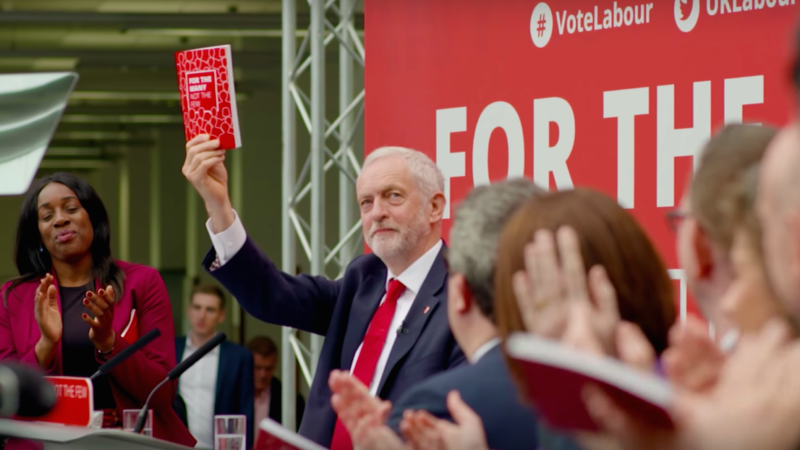
The sight of Ann Widecombe, a long-serving reactionary with a track record of anti-worker rhetoric, receiving standing ovations in working men’s clubs in Northern ex-mining towns should sit very uncomfortably with any Labour member, activist or supporter. But beyond the initial disgust at such a spectacle, this incident and others like it (Nigel Farage’s rapturous reception in ex-Labour heartlands, for example) should be of no real surprise. It is widely understood, even by those campaigning to overturn 2016’s Brexit referendum, that working-class areas in the North are battlegrounds being fought over, all too often successfully, by the resurgent far-right in Britain. Whether UKIP, The Brexit Party or, even more disturbingly, Tommy Robinson.
What needs to be understood immediately across the Labour Party is that the three years since the 2016 referendum have exemplified the same sense of abandonment of working-class communities up and down the land that was catalysed and reinforced by successive Tory and New Labour governments since 1979. A broad historical comprehension of British neoliberalism and its disastrous effects on Northern economies is important groundwork in explaining today’s working-class disdain for Labour. But even without it, a look at the last three years exposes why we are losing trust, respect and votes amongst the people our party was created to represent.
77% of areas where populations earn under the average wage voted to leave the EU. This is the most important statistic in the entire Brexit debacle. Even if Brexit were an advisory referendum not intended to be implemented (as some of the most fervent Remainers claim), it would have been an entirely useful exercise in exposing the class composition of the country.
The Labour Party’s raison d’être is the parliamentary wing of the organised labour movement, and beyond that, to directly take on the ruling class and fight for a fair share of the wealth that we create. In the largest expression of democratic participation in a generation, some of the leading figures in the party are attempting to undo an entire historical tradition whilst subverting democracy and siding with the interests of the 1%. It is grimly predictable that workers in their swathes are being turned off by our message.
We have only just restored the party with a leader deeply wedded to trade unionism, social justice and equality, yet we risk throwing away the possibility of a socialist government every time an MP, MEP candidate or high-profile activist calls for a second referendum. It is telling that despite the leadership rightly setting itself the challenging of attempting to unite the 48% and the 52%, much to the chagrin of hard-line Remainers, it is the Labour Party that is branded as standing in the way of Brexit by the enormously powerful right-wing media in Britain. Our party is being mocked by millions of working people in their daily paper as attempting to sabotage an utterly authentic display of working-class power. How can we then scratch our heads when the most vile bigots capitalise on this seeming treachery and successfully exploit forgotten heartlands with their snake oil?
The areas of our 2017 manifesto that score highest in opinion polls – despite being dragged through the Murdoch mud, portrayed as dangerously radical or utopian – are around nationalising key industries, funding schools and hospitals, and rejuvenating our industrial sectors in a way that marries productivity and climate justice. No other party is proposing these ideas.
According to general election polling, we have an average five-point lead on the Tories. We are in a position of immense strength and as we continue to outline a vision to rebuild Britain, we will become even stronger. Yet how can we rebuild Britain if Britain does not trust us? Our MPs have been tasked with carrying out a democratic decision and thus far, across the benches, they have failed.
Regardless of whether he has always been seen as a positive force by the public, even Jeremy Corbyn’s detractors accept that his key selling point is that he is seen as a departure from establishment politics. But we cannot carry out a sustained dismantling of the establishment, which has caused untold misery and death for thousands of people since 2010, whilst our party is seen to be another of its representatives.




More from LabourList
‘Labour won’t stop the far right by changing leaders — only by proving what the left can deliver’
‘Cutting Welsh university funding would be economic vandalism, not reform’
Sadiq Khan signals he will stand for a fourth term as London Mayor